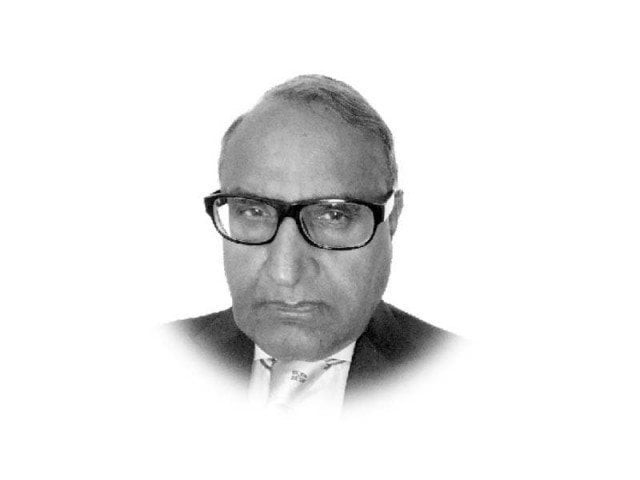Righting the NFC rightly
Effective local governments have been a feature of the dictatorial set-ups to fill the political vacuum they create

Out of the smog created by the needless reopening of the consensually settled issues of the National Finance Commission (NFC) shares and protection provided by the 18th Amendment, has thankfully emerged the right way to right things. The road to take is to ensure implementation in letter and spirit of the 7th NFC and the 18th Amendment. While the federal government ought to initiate tax reform to expand the pie and shed the load of expenditures no more in its domain, the provinces must demonstrate greater commitment to health, education and effective public service delivery. The last-mentioned has suffered seriously due mainly to the province’s distaste for elected and fiscally provisioned local governments, despite Article 140A inserted by the very 18th Amendment they swear by. The fact of the matter is that while the federal government transfers greater resources to the provinces, the provinces in return have failed to transfer resources further down to the local level. Better local governance in Khyber-Pakhtunkhwa (K-P) was an important element in PTI’s re-election there and even the election at the federal level in 2018. By a strange quirk of circumstances, however, the provinces governed directly or indirectly by the PTI have no local governments.
In this background, the latest cabinet decision to revive the Provincial Finance Commission (PFCs) in these provinces is a step in the right direction. Appointing the rediscovered doer, Asad Umar, to see to it that it happens, reflects the seriousness of the intent. Information Minister Shibli Faraz was spot on in observing that “generally chief ministers and influential provincial ministers utilised development funds in their own constituencies, which created a sense of deprivation among the people of other areas. Under the Provincial Finance Commission, every district would get its share of development funds under a formula.” This should please his PTI colleague Ali Asghar Khan who spent a lifetime working for local communities in Sooba Hazara.
Starting ad hoc in 2001, Punjab witnessed a regular PFC in 2006. There was an interim award in 2017, with the local share reduced significantly as were the functions under the Local Government Act, 2017. In a meeting of the technical committee of the PFC held in April 2018, headed by the present finance minister of Punjab, it was announced that the PFC Award would be part of the budget for 2018-19. But the government changed in May 2018 and the next two budgets presented by the PTI government were silent on the status of the PFC. In February 2019, the Government of Khyber-Pakhtunkhwa constituted the PFC under the Local Government Act, 2013. Like Punjab, the first two PTI budgets made no mention of the PFC. In the Balochistan Assembly, a resolution was passed for the formation of the PFC in October 2017. Recently, a similar resolution was passed unanimously by the Sindh Assembly, but the subsequent budgets were passed by the same forum regardless.
Effective local governments have been a feature of the dictatorial set-ups to fill the political vacuum they create. Elected governments feel no such vacuum and view active local politicians as direct competitors in the market for votes. Whether the current hybrid set-up can resolve this historical contradiction remains to be seen. It is, however, clear that the failure to match the outreach required for the official interventions to save lives and livelihoods in the wake of the unending coronavirus pandemic has brought home some truth of the matter. Moving forward, in addition to transfers under PFC, the local governments need a tax structure of their own, anchored in what economist Ehtisham Ahmad calls beneficial property taxation.
Published in The Express Tribune, July 17th, 2020.
Like Opinion & Editorial on Facebook, follow @ETOpEd on Twitter to receive all updates on all our daily pieces.















COMMENTS
Comments are moderated and generally will be posted if they are on-topic and not abusive.
For more information, please see our Comments FAQ